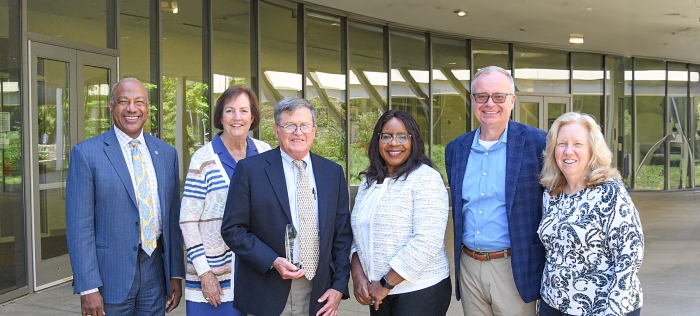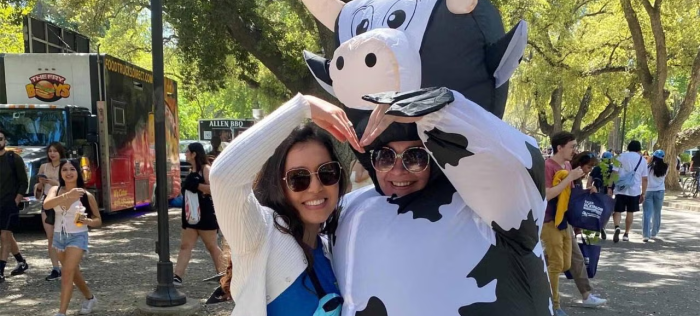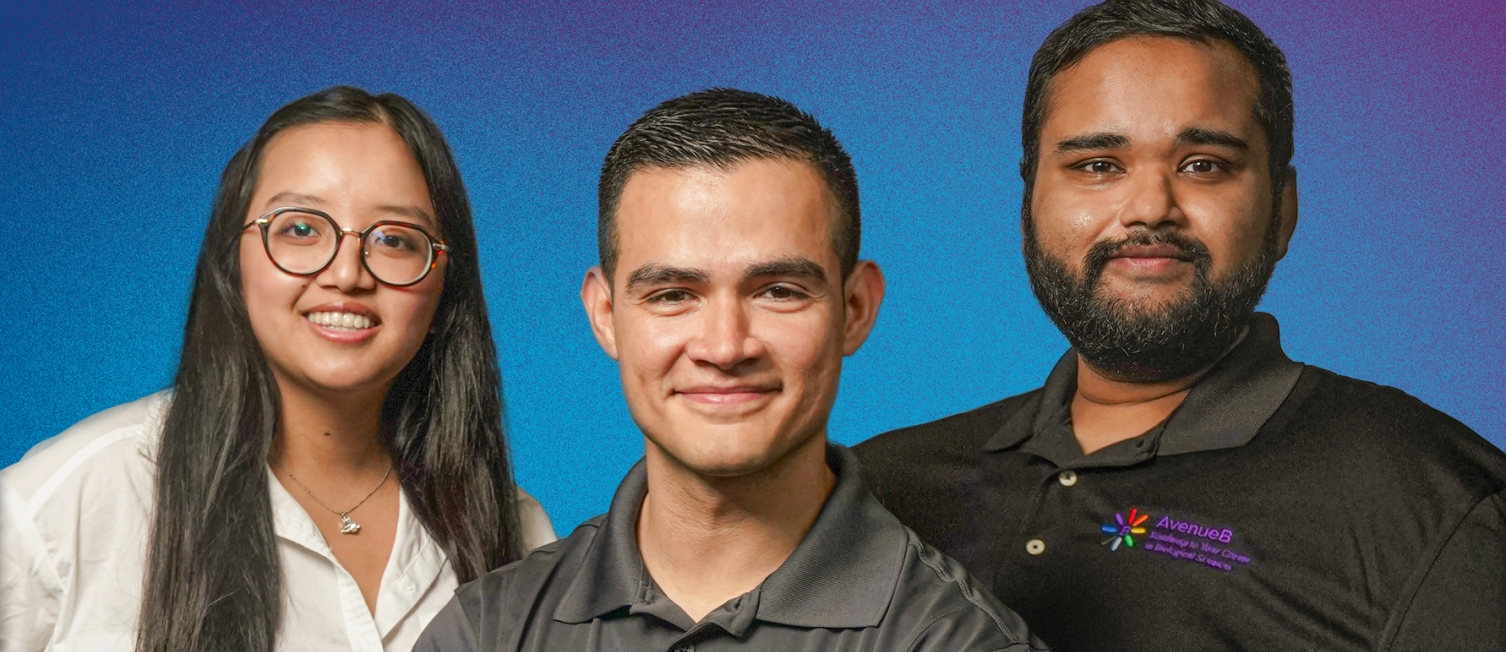
Avenues pave the way for STEM transfer students
When Jennifer Dang was 14 years old, her sister was admitted to a pediatric intensive care unit after flu symptoms led to severe, full-body seizures.
Dang sat at her sister’s bedside daily, advocating for care while translating conversations between health care providers and her parents, whose first language is Vietnamese. Her sister was later accepted into a clinical trial at UC Davis Children’s Hospital after being diagnosed with a rare disorder, febrile infection-related epilepsy syndrome, or FIRES.
Dang said her family’s experience with UC Davis Health had a huge impact on her. “I saw the delicacy required for great patient care and the application of research and evidence-based medicine,” she said. "It was there that I realized I wanted to become a doctor so I could help people like my sister.”
But Dang did not have any direct role models working in medicine to help her chart a path.
Navigating the complex system of higher education is challenging for most students, but it can be even harder for students transferring from community college, who often come from households with limited means or are the first in their family to attend college. That’s where the donor-supported UC Davis Avenues programs come in.
The Avenues offer a robust transfer support system for students pursuing undergraduate degrees in the fields of science, technology, engineering and mathematics (STEM). UC Davis currently offers three distinct Avenues, all funded by a combination of philanthropy, grants and industry sponsorships: AvenueB in biological sciences, AvenueE in engineering and AvenueM in medicine.
Widening pathways into medicine
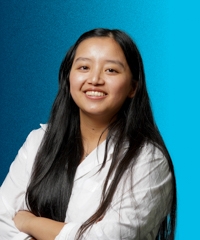
Today Dang is a student at Sacramento City College and one of 50 scholars in the inaugural class of the UC Davis School of Medicine’s AvenueM, a unique pre-med program that supports community college students as they prepare to transfer to a four-year university, and then on through their undergraduate studies and application to medical school.
“I feel like my pathway to education looks a lot clearer now,” she said.
Launched in 2022, AvenueM was funded with a three-year, $1.8 million seed grant intended to train the next generation of health care workers to provide culturally competent care in rural and medically underserved communities. AvenueM is widening pathways into medicine at a time when many California regions face physician shortages and disparities in health outcomes.
Scholars begin their AvenueM journey with a two-week orientation at the UC Davis School of Medicine, where they meet medical professionals from varying backgrounds and learn to practice basic procedures, such as drawing blood and stitching up an incision.
Future AvenueM classes will accept up to 50 students, depending on the number and quality of applicants. Program leaders hope to expand the program’s reach by partnering with more community colleges throughout the Northern California area.
Dang hopes to transfer to UC Davis in the fall of 2024.
Breaking down barriers
The UC Davis Avenue model was created in 2016 by the UC Davis STEM Strategies team within the Office of the Provost.
Beth Broome, senior advisor to the provost for STEM Strategies, said the Avenues programs began with a vision for a true pipeline program to support incoming STEM students every step of the way, from enrollment at UC Davis through graduation and transition to the workforce or graduate school.
“Avenue program students are diverse, innovative thinkers with the capacity to change the world,” Broome said. “The Avenues were created to amplify their success by breaking down barriers and providing comprehensive support.”
In addition to connecting students with the campus and its many resources through a two-week Transfer Bridge experience, faculty and staff help students navigate life’s challenges while providing targeted academic support through tutoring, mentoring and an inclusive peer network.
“The Avenues continue to make a substantial impact by increasing diversity, promoting access and equity and enhancing academic preparation and research opportunities,” said Provost Mary Croughan. “With increased donor support, we can extend these opportunities to many more deserving, young scholars.”
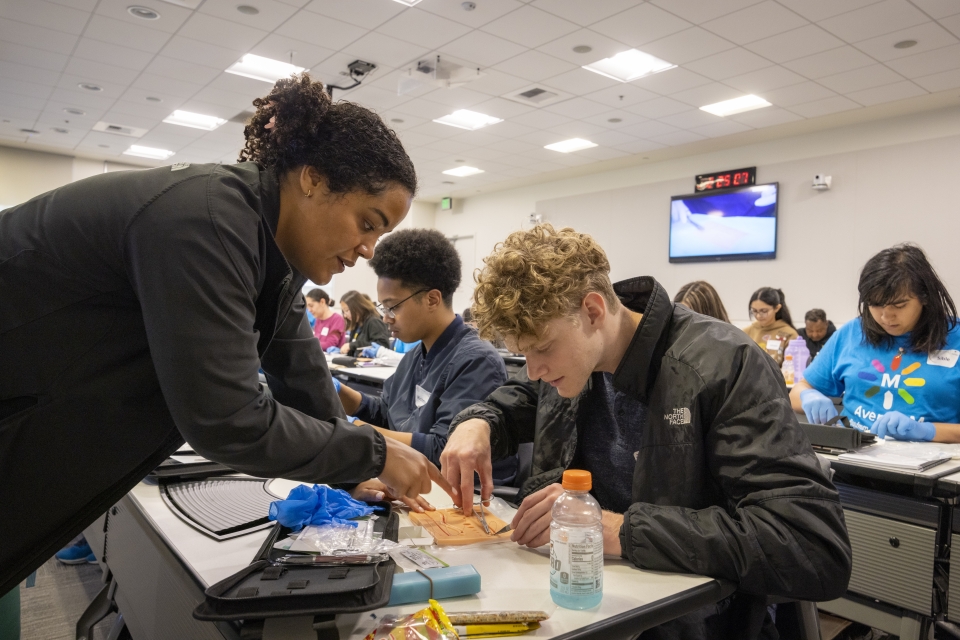
Providing culturally competent care
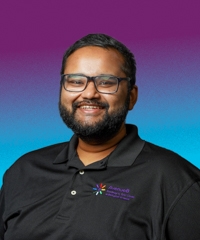
AvenueB is similar to AvenueM in that it prepares students for a future in health care, but the program is for new UC Davis transfer students in the College of Biological Sciences. Throughout AvenueB, scholars attend social events, speaker presentations and workshops that enable them to build community, learn from their peers and explore career opportunities.
Born and raised in the Fiji Islands, Aron Kishore ’23, M.P.H. ’24, said his decision to study biological sciences, public health and medicine was inspired by his mother’s diabetes diagnosis when he was a young boy.
“I knew that I wanted to find a way to fix it,” he said. “I wanted to find a cure for my mom.”
Kishore is pursuing a master’s degree in public health at UC Davis School of Medicine, where he is researching preventative strategies to reduce obesity and diabetes rates, and exploring how underserved and unhoused communities can gain better access to health care and nutrition. He said AvenueB had a profound impact on his undergraduate experience.
“AvenueB is the best thing that's ever happened to me,” he said. “I don't think I would have been able to navigate my way through the system, especially as a first-generation college student.”
The AvenueB program was launched in 2020 with a donation from the Genentech Foundation, a charitable foundation of physicians which invests in organizations with a proven track record of driving diversity and inclusion in science and medicine. The program has graduated 60 students since its inception.
Kishore plans to apply to medical school at UC Davis to fulfill his dream of providing culturally competent care to patients in rural or underserved communities. Aron said he saw the need for a “humble approach to health care” when he volunteered at the UC Davis student-run Shifa Community Clinic, which provides free high-quality multilingual and multicultural health care.
“Seeing the look in patients’ eyes when they learned we could address their health concerns at no cost made me realize that this is the most impactful type of care I could provide,” he said.
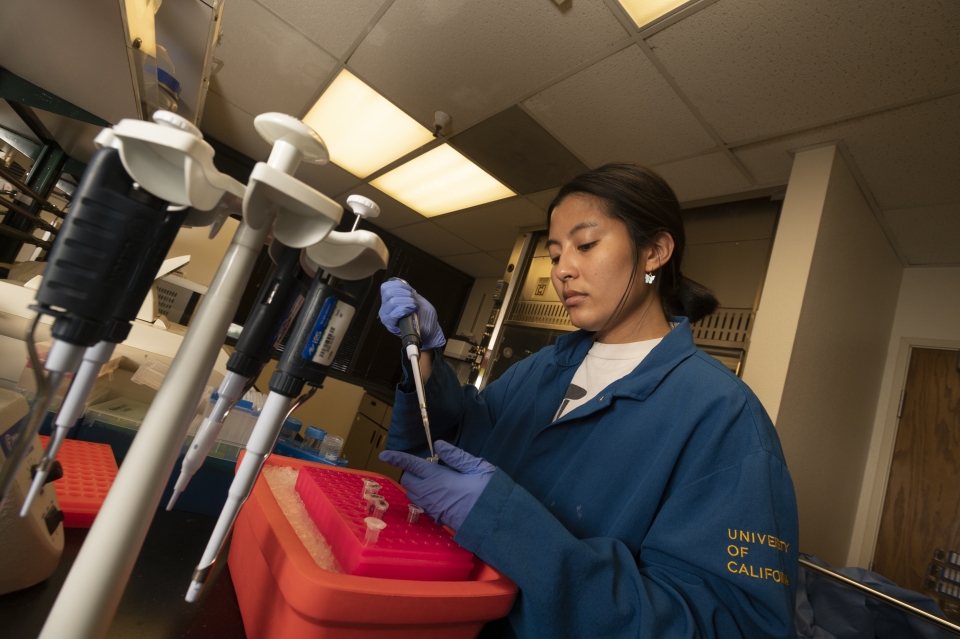
Teaching tomorrow’s top minds
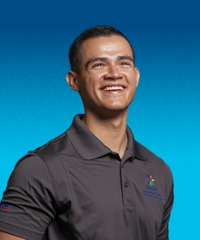
The first Avenue model, AvenueE, began in 2017 with the support of founding corporate partner, Chevron, and a generous gift from the Koret Family Foundation. AvenueE scholars are new UC Davis transfer students in the College of Engineering who gain hands-on work experience and receive guidance from professionals active in engineering, technology and computer science fields.
AvenueE scholar Jose Gavidia ’24 moved from Guatemala to the United States when he was 19 years old. He soon got a job washing dishes and enrolled in a course to learn English through the Marin Community College District. There he met an academic advisor who encouraged him to achieve more.
Gavidia is now in his senior year at UC Davis, studying computer science and engineering, with hopes of becoming a software engineer or exploring opportunities in artificial intelligence. He credits the AvenueE program with giving him a sense of belonging.
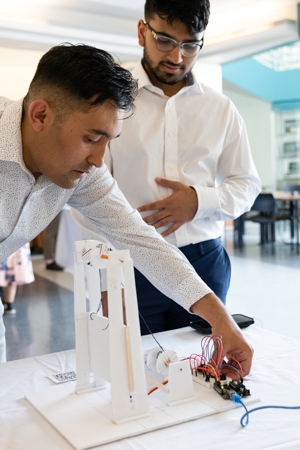
“The AvenueE program leaders helped me believe in myself and see that I am capable of achieving my goals in life,” he said.
AvenueE has doubled in size over the past five years, graduating 150 students since it began.
Growing up, Gavidia said he watched his father struggle to achieve the American Dream, working long hours at janitorial jobs in the U.S. so he could send money home to his family. His mother also did everything she could to provide a good life for him and his sister, making sure there was always food on the table and a roof over their heads.
When challenges arise, he said their perseverance inspires him to never give up.
“I’m here because I want to honor my parents,” he said. “I want to make them proud.”

